Since 2011, Brooklyn indie publisher Melville House, typically a champion of the avant-garde and radical politics — the Senate Intelligence Committee Report on Torture was a big seller — has been compiling slim volumes of late-life interviews conducted with novelists, lyricists, and philosophers that double as mini-mementos or maxi-epitaphs. The latest batch includes Nora Ephron, Ernest Hemingway, and Philip K. Dick, who, like the other authors in The Last Interview series, wound up sharing some memorable, if unintended, final testaments.
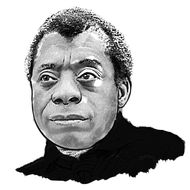
James Baldwin, 1987
I taught the yuppies … Perfectly sound young men came out of college, went to work for Nixon, and were hardened criminals on Wall Street before you knew it.

Roberto Bolaño, 2003
Well, I continue to live, to read, to write and to watch films, and as Arturo Prat said … “While I am still alive, this flag will not come down.” [In response to the odd question “Will you confess to having lived?”]

Lou Reed, 2013
The first memory of sound would have to be your mother’s heartbeat … And that’s why we love pwoh pwoh pwoh: It’s so simple, you know that.

Gabriel García Márquez, 2006
I think that I must have social anxiety … because I can maintain a one-on-one conversation, but it terrifies me to address an auditorium of people. I have the great advantage now that the people who come [to see Márquez] are already intimidated … and that makes it easier for me.
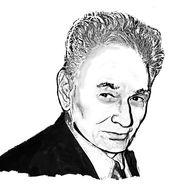
Jacques Derrida, 2004
When I recall my life, I tend to think that I have had the good fortune to love even the unhappy moments of my life, and to bless them … When I recall the happy moments, I bless them too, of course, at the same time as they propel me toward the thought of death, toward death, because all that has passed, come to an end.

Ray Bradbury, 2012
To wake up one day and realize that I am on the shelves with L. Frank Baum on one end and, at the other end, Edgar Rice Burroughs, and, down below, Jules Verne and H. G. Wells — that’s it, huh? Everything I did was pure love … And if you live that way, you’ve had a great life.
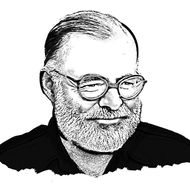
Ernest Hemingway, 1958
I had blood poisoning when I wrote The Old Man [and the Sea]. I wrote it right off in a few weeks. I wrote it for a dame; she didn’t think I had it left in me. I guess I showed her. I hope so. There was a woman behind each of my books.

Hannah Arendt, 1973
It has not prevented Nero, and it has not prevented Caligula. And in the cases of Nero and Caligula have not prevented an even closer example of what the massive intrusion of criminality can mean for the political process. [Explaining literature’s humanizing effect.]

Kurt Vonnegut, 2007
Here is what my great-grandfather Clemens Vonnegut said one time about Jesus, “If what he said was good, and it was marvelous, what did it matter if he was God or not?” … But I gotta go. I’m not well. Good luck.

Nora Ephron, 2012
I think for some people it’s a very short distance between it happening and it becoming a book. I think some people probably create a certain amount of uproar in their lives in order to have the next thing to write about. But I don’t think I ever did that.
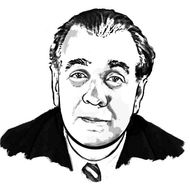
Jorge Luis Borges, 1985
Poor people are generous, rich people aren’t. My father used to say to me that when one inherits a fortune, they inherit the conditions that led to making that fortune, meaning that rich people inherit wealth and the qualities of miserliness and greed, which it maybe requires.
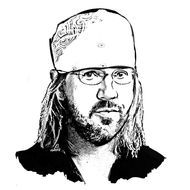
David Foster Wallace, 2008
What they did was mail me a huge box of trade-paperback-size sheets of paper, which I was to sign … I basically spent an entire weekend signing these pages. You’ve probably had the weird epileptoid experiences of saying a word over and over until it ceases to denote and becomes very strange and arbitrary and odd-feeling — imagine that happening with your own name. That’s what happened. Plus it was boring. So boring that I started doing all kinds of weird little graphic things to try to stay alert and engaged. What you call the “smiley face” is a vestige of an amateur cartoon character I used to amuse myself with in grade school. It’s physically fun to draw — very sharp and swooping … it always makes me smile to see that face. [Explaining why he’d signed copies of Infinite Jest with a smiley face.]

Philip K. Dick, 1982
I would like to know who got that cipher. It was very important that that cipher get out. It was a matter of life and death that that cipher get out. But it did, and it got read, and there was a response. There was an immediate response. [Explaining that his work was actually announcing the coming of the savior.]
*This article appears in the February 22, 2016 issue of New York Magazine.




